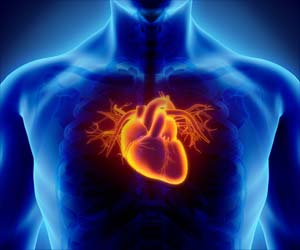Researchers identifies the presence of cardiovascular risk factors as an indicator of how likely it is that it is that elderly hospitalized patients who receive IVIg treatment.
New research out of Wake Forest University School of Medicine identifies the presence of cardiovascular risk factors as an indicator of how likely it is that elderly, hospitalized patients who receive intravenous immunoglobulin (IVIg) treatment will have a stroke or heart attack.
An advance copy of the study appears online this week in the Journal of Neurology, the official publication of the European Neurological Society. It is scheduled to appear in a future print issue.Prior to this study, physicians knew that administering intravenous immunoglobulin, or IVIg, could cause stroke or heart attack, but it was unclear when those serious side effects occurred.
''Stroke or heart attack has always been considered a fairly rare complication, but it's a catastrophic one,'' said James B. Caress, M.D., an associate professor of neurology and the study's lead researcher. Before this study, it was difficult for doctors to counsel patients about their risk for stroke or heart attack from IVIg treatment because previous reports could not identify which patients were at the highest risk, he added.
IVIg – used in patients with autoimmune disorders, such as multiple sclerosis, and with immunodeficiencies – is a drug made from human blood components. In patients who have an autoimmune disease, in which the body forms antibodies that attack its own tissues, IVIg can suppress the detrimental effects of those antibodies. In patients with advanced cancer, where the immune system is damaged from the tumor or chemotherapy, the drug boosts the immune system to stave off infections.
For the study, researchers looked at the medical records of 19 patients who had a stroke or heart attack after receiving IVIg. They also reviewed the records of 38 patients who were the same ages as those 19 patients, but who received IVIg treatment and did not have a stroke or heart attack. The patients, who had an average age of 71 years, received the treatment between August 1998 and May 2004. The researchers compared information about the two groups, including gender and race, the reason the patients received IVIg treatment, dosage, previous exposure to the drug, and the patients' risk factors for stroke and heart attack.
Researchers found that no single cardiovascular risk factor increased the chance of having a stroke or heart attack after IVIg treatment. However, the likelihood of having such an event appeared to increase slightly when the patient had two or more risk factors and, when four or more risk factors were present, patients were 10 times more likely to have a heart attack or stroke within two weeks of receiving IVIg, according to the study's findings.
Advertisement
Neither the race nor gender of the patient affected the risk of stroke or heart attack, the study showed.
Advertisement
The latest study expands on that report.
''Prior to 2003, other investigators had reported stroke and heart attack due to IVIg, but these complications were believed to be extremely rare,'' Caress said. ''Now we know that having just one or two cardiovascular risk factors does not result in a major increase in risk for heart attack or stroke after IVIg treatment. But if the patient has three or four of these risk factors, the chance of having a serious complication is substantially higher.''
Since 2003, the U.S. Food and Drug Administration has required that IVIg manufacturers add a statement about the risk of stroke and heart attack to their products, so most physicians are now aware of the uncommon complication. It is still unclear, however, what causes the dangerous side effects, Caress said.
Still, the current study gives physicians and patients some direction when considering IVIg treatment, he added.
''I feel good about recommending the treatment, even to older patients, unless they have several cardiovascular risk factors,'' Caress said.
Source-Eurekalert
SRM







